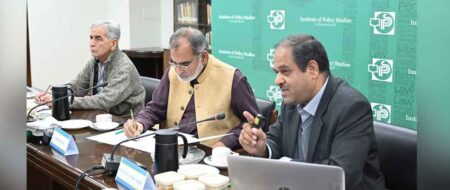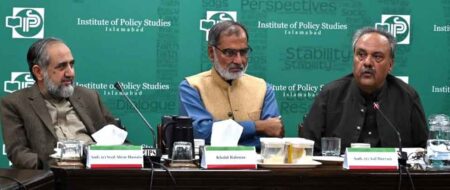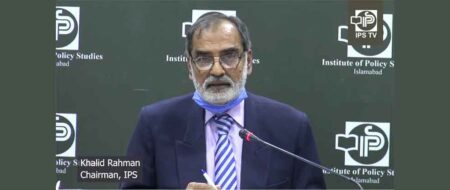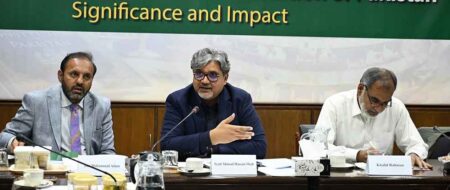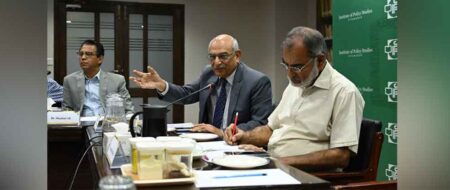Pakistan must clearly outline its refugee policy: Amb Abrar Hussain
Pakistan has the legal right to deport all those staying in the country illegally and this right cannot be contested. However, the issue of illegal Afghans should be addressed through a comprehensive approach. For that, it is pertinent that Pakistan should outline its refugee policy clearly.
This was viewed by Ambassador (r) Syed Abrar Hussain, vice chairman, Institute of Policy Studies (IPS), in a roundtable discussion on ‘Afghan Refugees and Illegal Migrants: Problems and the Way Forward’, held at the Institute of Regional Studies (IRS), Islamabad, on December 29, 2023.
The roundtable was also addressed by Dr Noreen Naseer, University of Peshawar, Sibah Farooq, human rights law expert, Safia Ibrahimkhel, Afghan women rights activist, and Ambassador Nadeem Riyaz, president, IRS.
Ambassador Abrar said that Pakistan has hosted millions of Afghan refugees for several decades because of the instability in Afghanistan. Now that the country is at peace, it is only fair that at least undocumented immigrants should return to their homeland. Moreover, it should be noted that Pakistan is still hosting around 2.7 million Afghans and is also engaged in the resettlement of Afghan refugees in third countries.
Although Pakistan’s move to repatriate illegal and undocumented immigrants has raised many concerns, especially among Afghans, it is generally admitted that Pakistan has the legal right to deport all those staying in the country illegally and this right cannot be contested. These concerns are based on assumptions that the decision to expel illegal immigrants, mainly Afghans, seems to have been made in haste and without proper planning. They raise the concern that the Afghanistan government might not be able to facilitate all returning Afghans, and this may create a humanitarian crisis. Also, there is a feeling that if such a decision was to be taken, the right time for it was summer and not winter.
Speaking about the impact of repatriation of trade ties, it was observed that the policy of expulsion of illegal immigrants will most probably not affect the bilateral trade or Afghan transit trade. Some other steps taken to curb smuggling and regulate Afghan transit trade may discourage those involved in smuggling in the garb of trade but for genuine Afghan traders, Pakistan is still an attractive business partner.
It was further discussed that international organizations such as UNHCR, IOM (International Organization for Migration), and others can foster constructive engagement and cooperation to leverage the pull factors in Afghanistan. One of the major pull factors i.e., peace is already there. Other pull factors can include a place for residence, a piece of land, monetary assistance to start a business, and some quotas for refugees in government jobs. They can also create incentives for Afghan refugees in other countries as a comprehensive approach.




